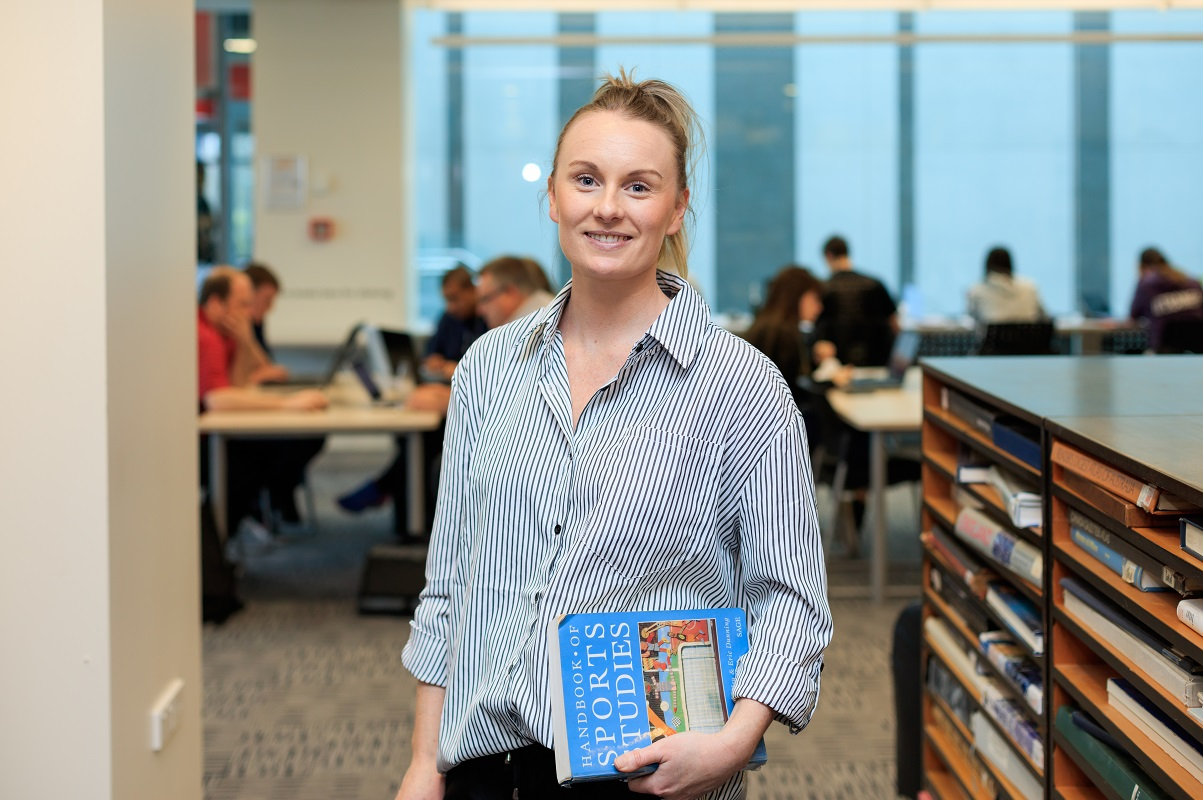Kristoffer Lavasi'i
Bachelor of Laws, Bachelor of Social Sciences

Master of Health, Sport and Human Performance, Doctor of Philosophy, Bachelor of Sport and Human Performance
Chief Executive at Waikato Rugby
Hamilton, New Zealand

Prior to her appointment as Chief Executive for Waikato Rugby, University of Waikato alumna Dr Amy Marfell made a real impact in her roles at Sport Waikato. During her time there as Growth Advisor and Women and Girls Initiative Lead Amy shared her experience of studying at Waikato and the difference it had made in her career.
The University of Waikato offers flexible degree options and the ability to combine the study of multiple disciplines into your degree structure, which was really appealing to me. I studied at the University of Waikato for 8 years – beginning at undergraduate level, moving through to Honours, Masters and then completing my Doctoral studies – and throughout this time, I had incredible support from staff in the Faculty of Health, Sport and Human Performance. I was given opportunities and supported in a way that nurtured me to consistently grow and develop as a student and scholar.
I’m a sociologist through and through – I have a real passion for understanding people’s experiences as they relate to the social world in which we live and to aspects of identity such as gender, sexuality, race/ethnicity and the body. Coupled with my passion for studying sport and physical activity, I am always interested in how culture and values influence sports and vice versa, as well as the relationship between sports and the media, politics and social inequality.
My role involves leading the design and delivery of This is ME™, an initiative developed by Sport Waikato to grow women’s and girls’ participation in sport, physical activity and recreation by increasing the quality of delivery by providers, challenging the messages females receive about physical activity, and increasing the number of positive conversations women and girls are having about getting moving. As part of my role at Sport Waikato, I'm also the Team Leader for staff working to grow participation in physical activity among Māori and people with disabilities in the Waikato region.
Over the past four years, I’ve been fortunate to have taught at a tertiary level before moving into the Sport Waikato environment. Now I get to apply much of the critical knowledge I gained throughout my tertiary studies to help address some of the challenges and inequalities people, particularly women and girls, face when it comes to participating in sport and physical activity. My role at Sport Waikato is great because every day it’s research in practice – I get to apply the learnings I have gleaned throughout my time in the tertiary environment to try and generate social change, and that’s really rewarding.
One of the most rewarding things about my job is seeing social change happen and knowing that I’ve played an important part in that. Inequalities in sport and physical activity for women and girls have existed for centuries, so to be leading a regional movement and initiative that attempts to address some of these inequalities is amazing.
My current role focusses on designing strategy to begin breaking down the barriers women and girls experience when it comes to getting active. These include things like a lack of quality opportunities to participate, not knowing how to connect, and issues around body-image confidence. A large part of the role focusses on education and influencing change at a structural level to grow participation, but there’s also an important emphasis placed on challenging the dominant social messages that females receive about whether sport is for them or not, or how they should and shouldn’t look before, during and after physical activity. Tackling these key issues that are present at a range of levels has been needed for a long time and I’m proud to be part of the effort to generate this change.
Take every opportunity to learn and grow, particularly when it comes to critical thinking. Don’t be afraid of a challenge.
Studying in such great depth and for so long taught me a lot about myself – I learnt that I have a real thirst for knowledge and learning and being in the University of Waikato’s academic environment, both as a student and as a lecturer, really nurtured that. I also learnt some pretty invaluable habits and ways of working that have set me up well in my career – things like the ability to work independently and to self-motivate, to be organised, and to think critically.
I wouldn’t change a thing – it’s been a wild ride so far and I’ve enjoyed every part of it!
You’re currently viewing the website as a domestic student, you might want to change to international.
You're a domestic student if you are:
You're an International student if you are: